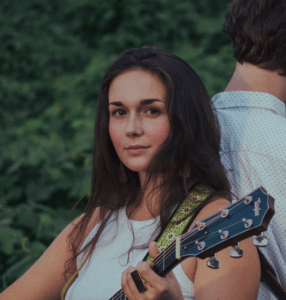blog
Mental Health & Youth Empowerment – (Be) Kind Initiative’s Mission for a More Understanding and Kind World
 Interviewed by Kristie Moore a former Call For Kindness Fellow and Current Continuation Grant Recipient. Her project Amigos Con Todos introduced youth to Mexican American and other Latin American cultures in an attempt to foster cross-cultural understanding. She is currently a sophomore at UC Berkeley studying Global Studies.
Interviewed by Kristie Moore a former Call For Kindness Fellow and Current Continuation Grant Recipient. Her project Amigos Con Todos introduced youth to Mexican American and other Latin American cultures in an attempt to foster cross-cultural understanding. She is currently a sophomore at UC Berkeley studying Global Studies.
Can you tell me a little more about yourself and your project?
My name is Sydney, I’m 21 and my project is (Be) Kind initiative and it’s based in Chattanooga, Tennessee, where I currently live. Before that, the Be the Change Youth Initiative was a nonprofit that I started. We had multiple different initiatives centered around youth empowerment and mental health advocacy. We work with youth in schools in Hamilton county, which is in Chattanooga Tennessee. Our focus is on being able to give space for students to feel empowered and understand that they are seen, heard, and loved. We want to give them a space to express themselves freely and see that they’re here for a purpose and that they don’t have to discount themselves or let what other people say, deter them from pursuing something they want to pursue. All youth have the capability to create change, and that’s really what we’re all about. (Be) Kind is my project for Riley’s Way. We partner with a coffee shop in Chattanooga called (Be) Caffeinated and use their coffee sleeves to share encouraging messages. We bring the sleeves into schools and encourage students to write encouraging notes on them. That way they can see how they can make an impact in our community whether it is just by spreading kind words, encouragement, or supporting one another and how our words have a massive impact and how they can turn you down or lift you up.
Starting an initiative can be an incredibly personal experience for many people, how have your own journeys and experiences led you to this point?
I’ve had a lot of adult leaders in my life that I’ve trusted tell me my gift and talents aren’t good enough and that I’m too young to make a difference. All of these things happened at such a crucial age, I was 12 or 13 when all of this started happening and that’s when I started writing music, seeing the importance of lifting each other up. Because of those experiences, I for so long didn’t touch an instrument, didn’t write anything, and kept to myself. It’s one of those things that really allowed me to see that It doesn’t matter what people say, it only matters that I believe in myself. We’re all here for a reason and have a purpose. When people don’t listen to you and don’t support you, or it feels that way, we can be that support system for each other. I think because of those really difficult experiences it was really hard for me for a long time and I’m still breaking down lies that people have said to me over the years. Now I can use that to encourage others and show them that they aren’t alone. We are super honest about sharing our mental health struggles and so many people struggle with those things, so being able to say that isn’t the end and that it’s just part of our story and our journey and that it’s okay to struggle with these things. We want to break down these stigmas and say that it’s okay and a part of life.
What role has music played in your project and life in general?
Music has always been a crucial part of who I am because it’s a way that I can express my feelings and stories and thoughts into something I can share with people. It’s been a way that I can cope with my mental health struggles. I’ve struggled a lot with body dysmorphia and eating disorders, which is something that has held on to me for most of my life and that I can express through my songwriting. It has also played a massive role in Be the Change because we started talking to youth through music. My family lived in an RV together for a year and we would talk to youth at youth events and share these stories and songs. It gave us a platform to talk about these things. Now we go into schools and we’re able to share these really difficult conversations. Music has a power to transcend barriers and it is something that brings people together. That’s why it has always been so crucial to us. It is something that can take people into the space where they feel peace and a sense of calm, and that is something that is so crucial to who we are as humans.
How did your project go from an idea to being tangible change in your community?
After everything happened in my life where I was talked down to, I started having more conversations with my parents, who were extremely supportive and showed me how much of an impact their words have on our lives. This support system showed me that I could make a difference. This started with fundraising. I had always wanted to fundraise for a massive organization, so for my 15th birthday, I decided to do that and got all of my friends involved to raise $7,000. It was one of those things that showed how much beauty is in the pain that you go through. These moments build you up. It is truly receiving this encouragement and speaking it into other people’s lives that made this possible.
Are there any milestones or accomplishments that have really stuck with you or that you are particularly proud of?
I’m going to be completely honest and say that holding on to accomplishments has always been very difficult for me. I am someone who constantly experiences imposter syndrome. I think more people need to say that too because yes, I’ve accomplished things. After fundraising $7,000 for the Make a Wish Foundation, I won an award, but I was too scared or ashamed to say those things because I didn’t want people to judge me. I lost so many friends because I was choosing to pursue this nonprofit work at such a young age. It’s just a part of life and I constantly feel like I’m not deserving of this and I know that’s not okay. There are so many youth that feel that way too. So I think the biggest takeaway is being able to acknowledge your work is good and it’s okay to wrestle with the fact that it’s okay to be proud of the work you’re doing. You are not alone in that.
What has your community’s response been to your project and the work you do?
It’s been so cool! Chattanooga has been the most receptive and amazing community I’ve been a part of. When we first started Be the Change back home, there were a few supporters, but a lot of people didn’t give us the time of day. This made us feel so discouraged and wonder why we were even doing the work we did. But Chattanooga was like a lightbulb. It has been such a hard journey and we have all given up so much in pursuing this opportunity. Chattanooga has been a lot more receptive than I expected as we’re in the South and there’s a lot of stigma around mental health and we had to have some really difficult conversations with people. People are not wanting to talk about these things. We have to dig into these deeper things and what’s affecting our youth. When you find the right people who share these concerns it is so much easier to break down systemic issues.
How did COVID impact your project and your ability to deliver your message?
We moved to Chattanooga two weeks before quarantine started, so we were living in the RV and our last stop was Nashville. It was too expensive to live in an RV park there, so we went to Chattanooga instead. We shifted our project from fundraising to mental health. Our first show in the RV was life changing. I’ll never forget, there was a middle school student that came up to me after and thanked my brother and I for sharing our stories. My parents and I talked later that night and realized we had to do something about this. We continued talking about mental health, and social issues. COVID gave my family and I the time and space to discuss what we want Be the Change to be.
How do you think your project and leadership embodies the values of Riley’s Way?
I like to give people the space to express themselves, especially youth as I know what it feels like to not have that space and it has put me in a bad head space for so many years. I’ve learned how to listen to people and accept them as they’d like to be accepted. The more we can do this and have conversations with people, the more we can create change on a larger scale. We should be receiving people with dignity.
How have you grown from implementing this project?
I’ve learned how to be more confident in my position. I had my first business meeting when I was 18 and this project is very much a family thing. My mom and I are the only ones on staff, and we do everything by ourselves. I’m learning to be confident in the place I’m in and being present. I don’t want to lose myself in the conversation I’m having. I’ve grown a lot not only in that professional side of things, but also growing to be more open in the way I receive people, in my mindset, in how I see myself and others. Empathy is cultivated and I have started growing so much more. Showing other people as much love as possible is what changes you.
What advice would you give others who want to make change in their community?
The words you use for yourself are so important. We Bought a Zoo. It is my favorite movie of all time and the question “Why not?” which plays a large role in it is so important. It only takes 20 seconds of insane courage to be the change. It’s okay to take risks and fail. If you don’t take that risk, you’ll never know.
Do you plan to expand your project in the future? If so, how and what new milestones do you hope to reach.
We’re moving from Hamilton County to Hickman County, so we’ll be in front of a whole new group of students over the course of 3 days. This is really exciting and not something we expected to happen so soon.

